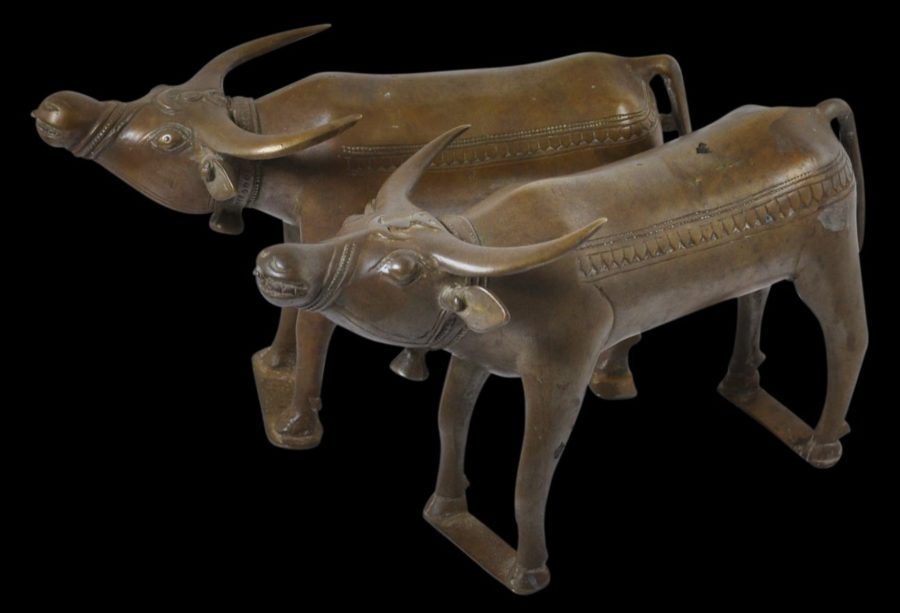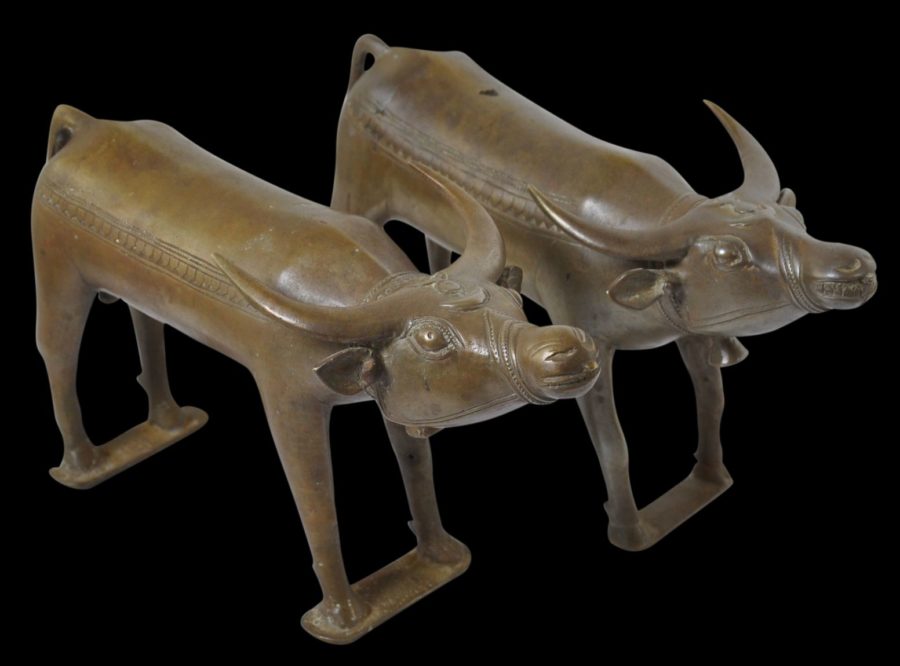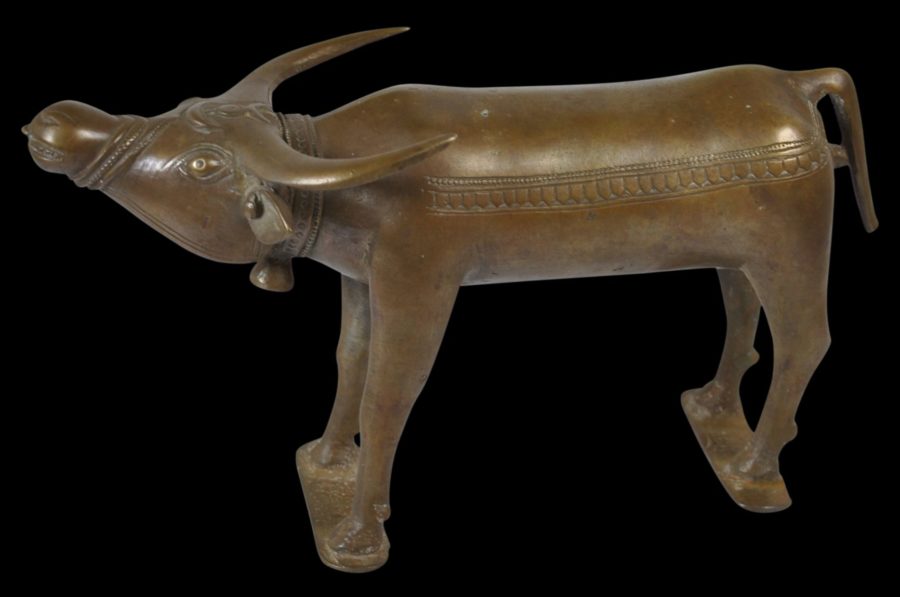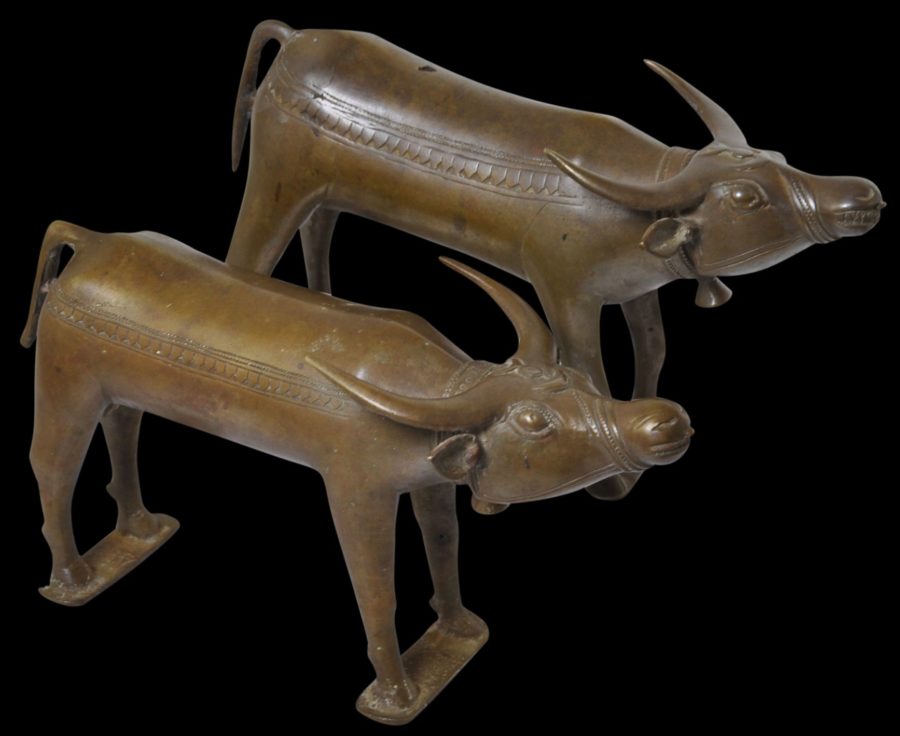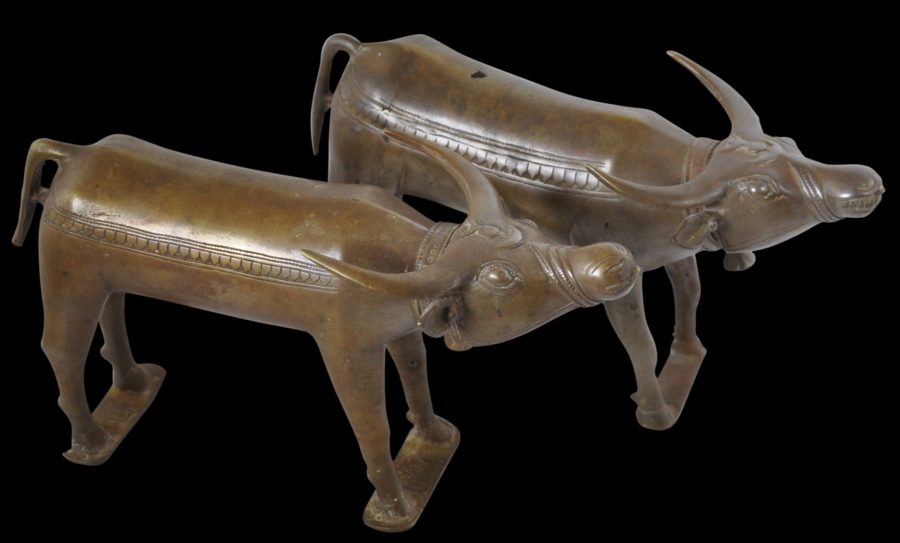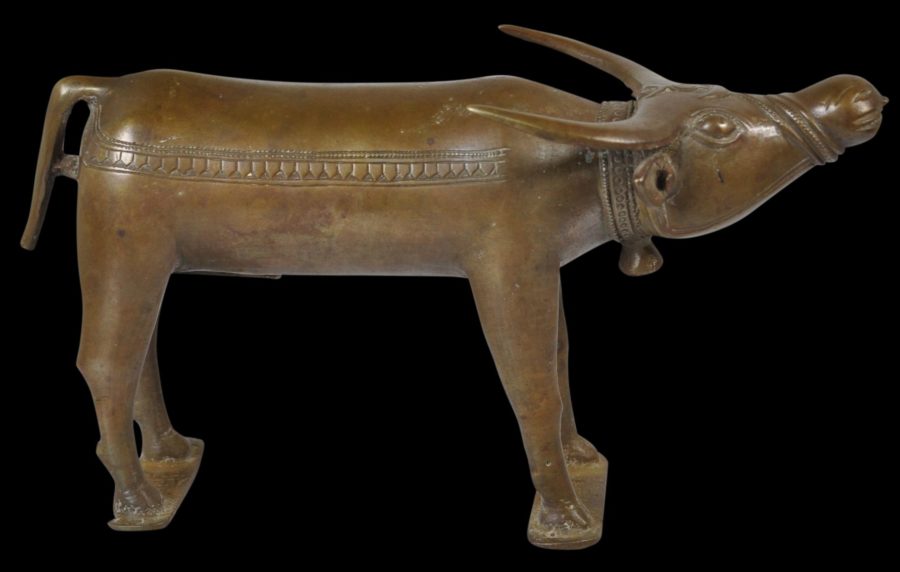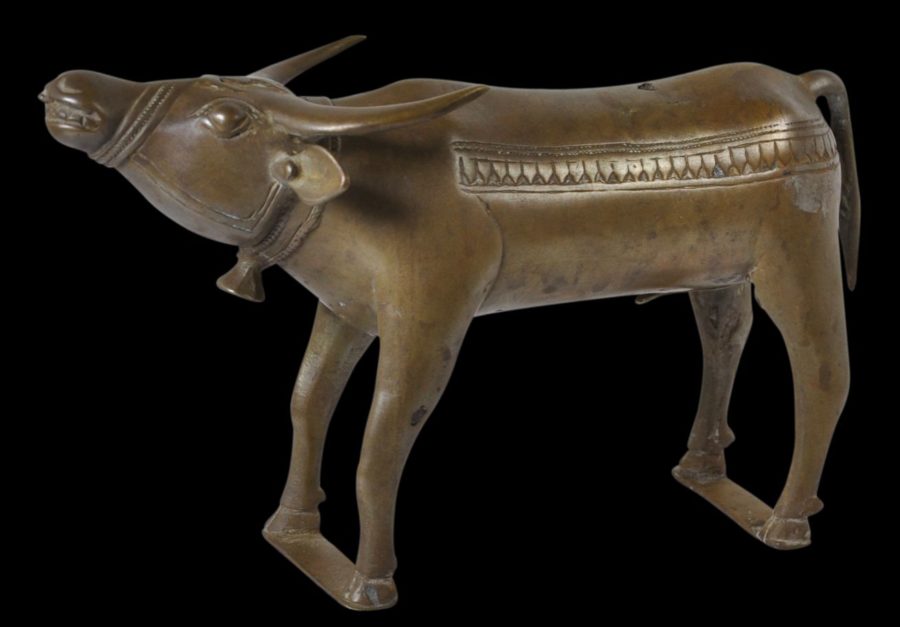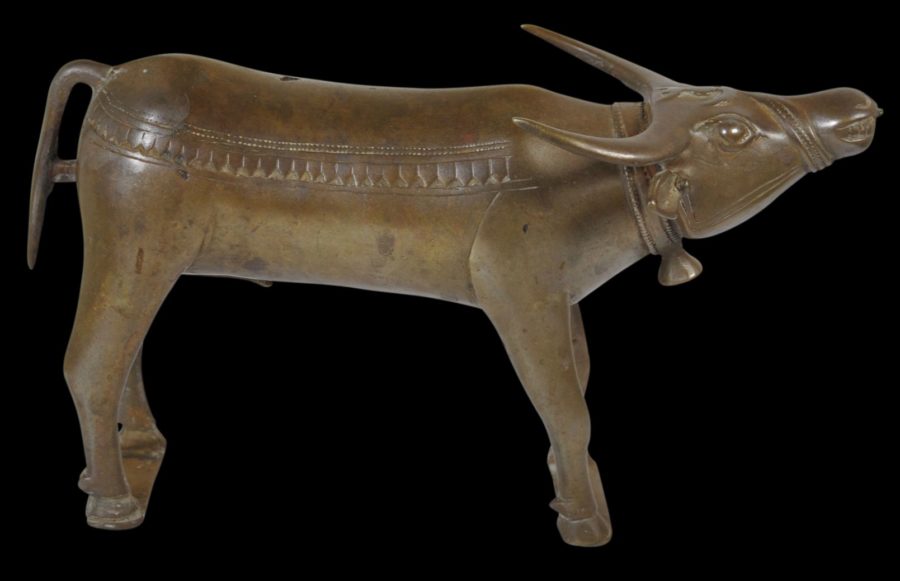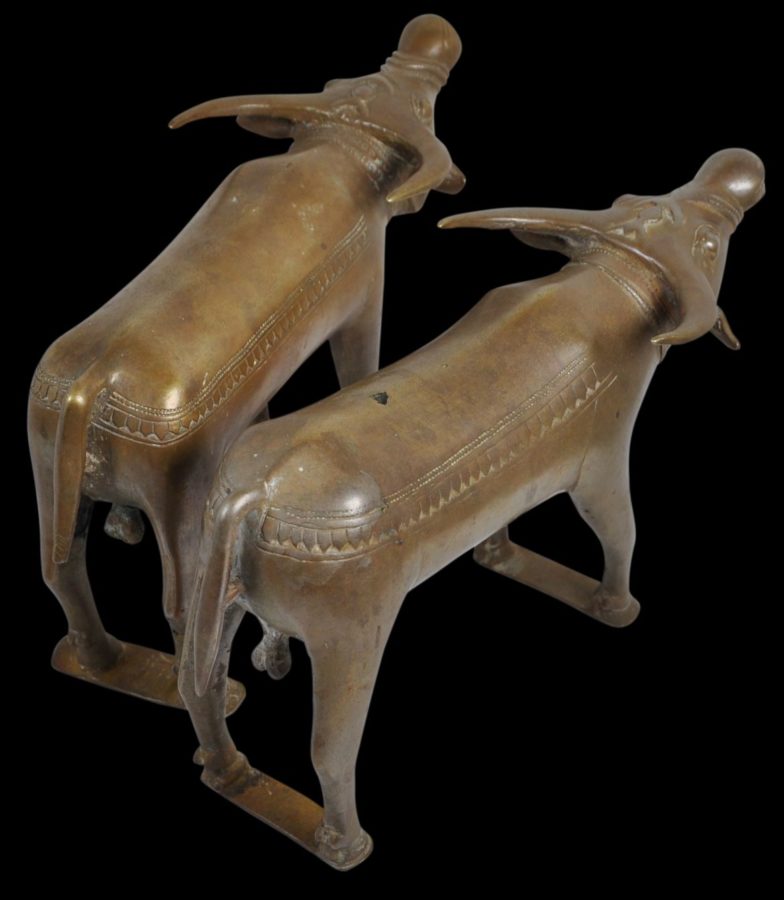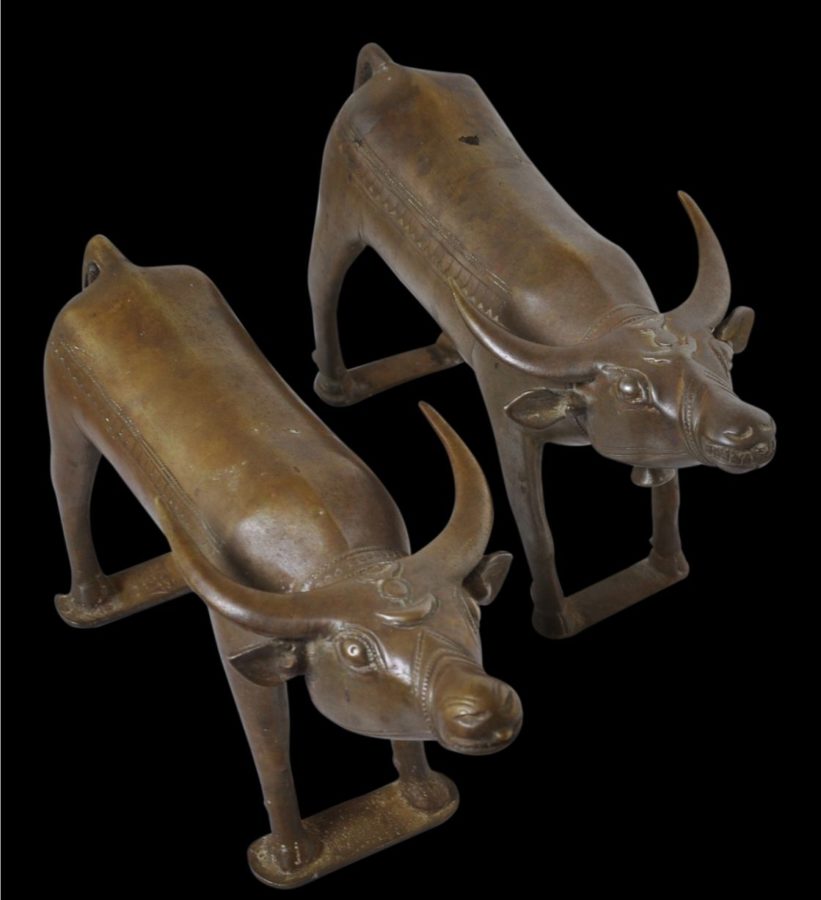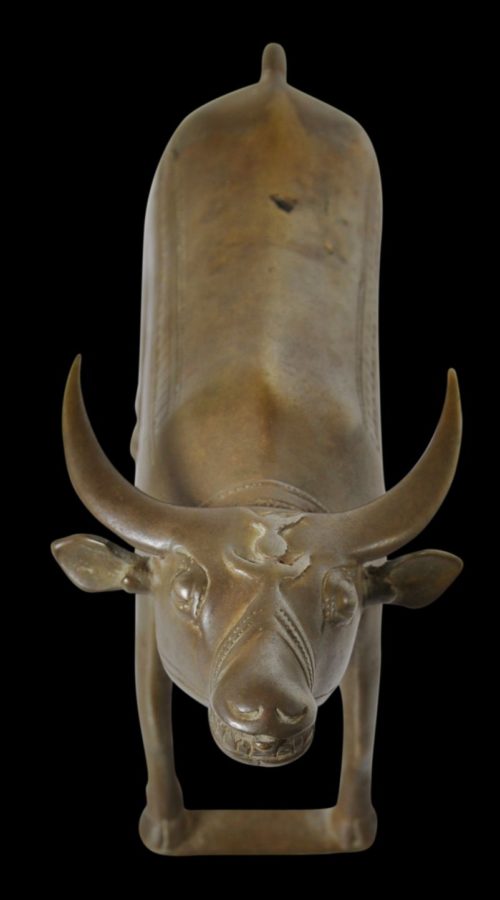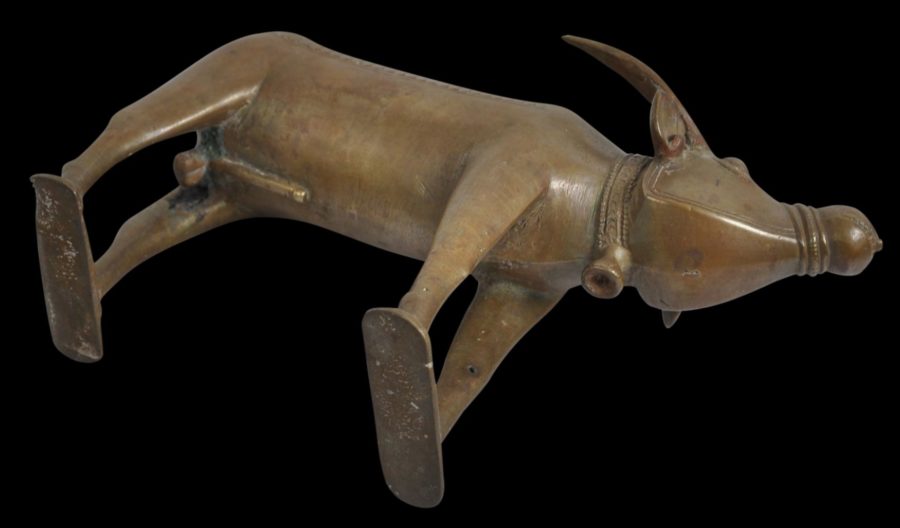Enquiry about object: 6069
Pair of Bhuta Cow Figures (Nandigona)
Karnataka, India 19th century
lengths; 21cm, heights: 11.6cm, combined weights: 2,244g
Provenance
UK art market
This rare pair of long-horned cow figures represent Nandigona, one of the deities in the Bhuta cult prevalent in South India which is only loosely related to Hinduism, and which are related to the harvest cycle and fertility.
Each is of solid cast bronze or brass.
Each has been cast with sun and moon symbols to the forehead, symbols that are associated with Shiva. Each also has a bell around its neck and prominent testicles suggestive of fertility and perhaps the aspiration for abundance.
‘Bhuta’ is a Sanskrit word that means ‘passed away’ or ‘spirit’. The term is also used to refer to the ancestor cult practised in the Tulu Nadu region of the southern coast of Karnataka (Rond, 2011). Bhuta ceremonies (bhuta kola) featured the interaction between the audience and a masked oracle who received the invoked spirit. Such ceremonies typically took place once a year and were sponsored by upper-class families usually from the Kshatriya caste. Once the ceremonies were over, the masks worn by the dancer-oracles were returned to the temples (sthaana) where they were worshipped as representations of the spirits. It is on these altars that images such as those of Nandigona here also would have been kept.
Both images are in excellent condition. One has a small casting flaw on the back, but both are very well modelled and unusual.
References
Beltz, J., et al, Wenn Masken Tanzen: Rituelles Theater und Bronzekunst aus Sudwestindien, Museum Rietberg, 2009.
Rond, F., Bhuta: Masques & Objets Rituels des Espirits/Masks & Ritual Objects of the Spirits, Karnataka, Inde di Sud, Galerie le Toit du Monde/Indian Heritage, 2011.
Untracht, O., Traditional Jewelry of India, Thames & Hudson, 1997.


